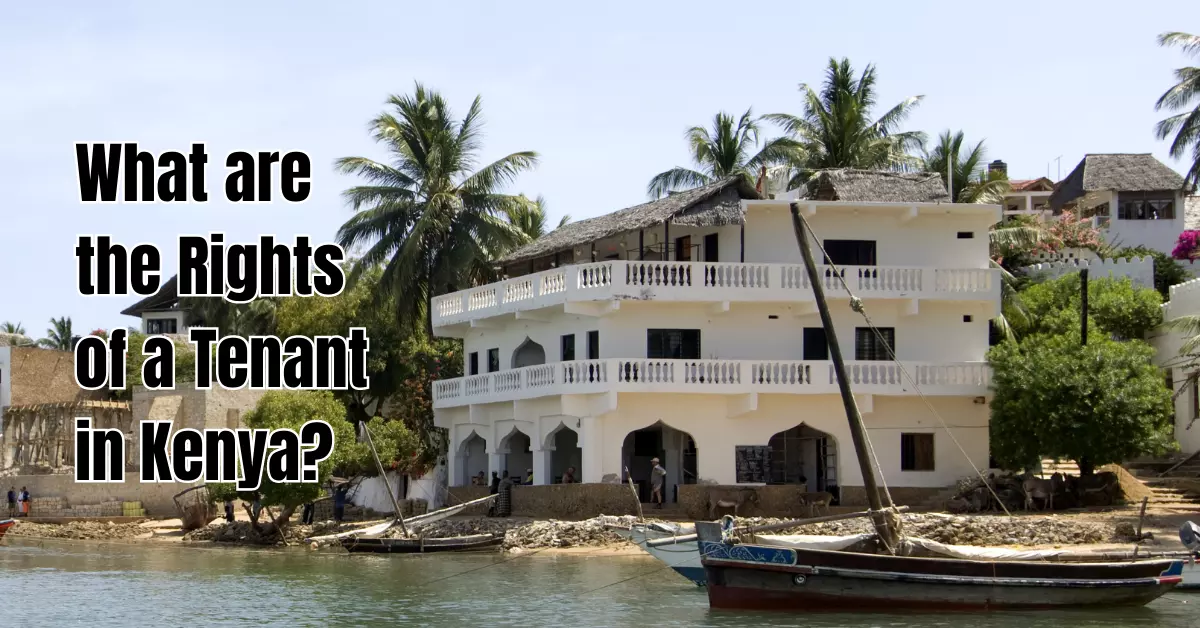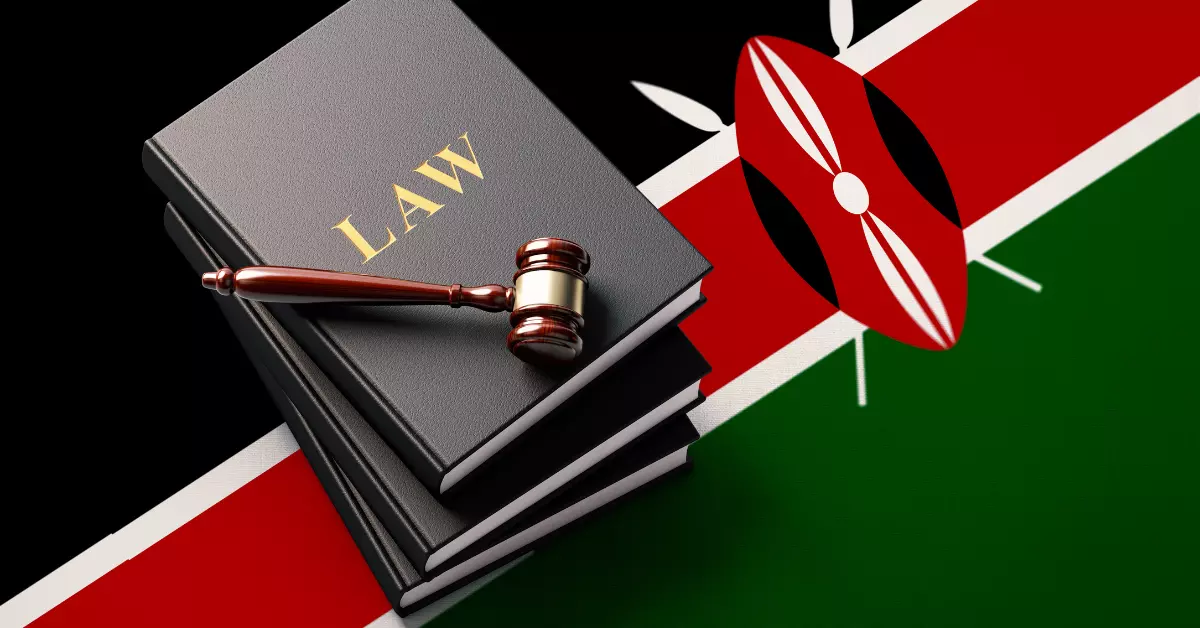What are the Rights of a Tenant in Kenya? Rental Awareness
Tenants in Kenya have rights to protection, peaceful occupation, and affordable rent. As a tenant, you have the right to a written tenancy agreement, privacy, and security, and you can take legal action against any landlord who fails to protect these rights.
The law mandates landlords to provide tenants with habitable premises, fair rents, and notice before any eviction or rent increment.
In this article, we will take a closer look at tenants’ rights in Kenya.

Understanding The Basics Of Tenant Rights In Kenya
Tenancy laws provide guidelines for the rights and obligations of both the landlord and the tenant.
As a tenant in Kenya, it is essential to understand your rights to ensure a fair and peaceful tenancy.
Importance Of Understanding Tenant Rights
Being aware of your tenancy rights in Kenya is crucial as it helps you exercise them accordingly. Ignorance of your rights could lead to exploitation, legal disputes, and even eviction.
Understanding your rights affords you leverage in negotiating with your landlord and can help in building a positive tenant-landlord relationship.
A significant section of the Kenyan population rents, and by knowing your rights, you can make informed decisions when seeking and occupying rental properties.
Factors Affecting Tenant Rights
Several factors affect the rights of a tenant in Kenya, including:
Type of tenancy
Different types of tenancy come with varying rights and obligations. For instance, tenants in a fixed-term lease have fewer rights than tenants in periodic leases.
Rent payment
The tenant’s rights are dependent on whether the rent is paid on time or not. A rent default can lead to legal action by the landlord, including eviction.
Property condition
The landlord has an obligation to provide the tenant with a habitable property. If the property requires repairs or maintenance, the tenant can demand that the landlord carries out the necessary action.
Termination policy
Both the landlord and the tenant have rights when it comes to terminating a lease. Understanding the conditions that warrant termination is essential for both parties.
Relevant & Useful Tenant Rights Under Kenyan Law
As a tenant in Kenya, it is crucial to have sound knowledge of the country’s legal framework governing housing and rentals.
This knowledge is even more critical considering the country’s shortage of affordable housing and constant concerns over tenant-landlord relationships.
Here, we highlight some of the critical tenant rights under the Kenyan law that you must know.

Overview Of The Legal Framework
- The Kenyan Constitution 2010, the Landlord and tenant act, and the rent restrictions act form the legal framework governing tenant rights in Kenya.
- Additionally, the Registration of documents act requires every tenancy agreement lasting over three years to get registered.
Tenant Rights Regarding Tenancy Agreements
- The tenancy agreement signed between you and your landlord outlines your terms of living and tenure. Know that a verbal agreement also counts in Kenyan law.
- Your landlord has no right to alter or modify your agreement’s terms without your consent unless it’s a matter of compliance with the law.
- You have a right to demand a legal document that outlines the terms of the tenancy agreement.
Landlord Duties And Responsibilities
- Your landlord is responsible for ensuring your unit is habitable and maintains it during your stay.
- They also must provide you with essential and basic services such as water, electricity, and garbage collection services.
- Your landlord/agent must keep your security deposit, setting it aside in a separate account to compensate you at the end of your tenancy.
Tenant Rights Concerning Rent Payment And Arrears
- You have a right to view the full breakdown of the rent you are expected to pay.
- Your landlord has no right to distress or seize your property for payment of rent arrears.
- Before evicting you for rent arrears, your landlord is required to provide you with a 30-days eviction notice.
Right To A Habitable Home
- Your landlord is responsible for providing you with a house safe and fit for human habitation.
- You have a right to report any defects or lack of essential services to your landlord/agent, and they should fix them promptly, but it is ultimately your duty to maintain the house in good condition.
Tenant Rights Concerning Eviction
- It’s illegal to evict a tenant without a court order.
- You have the right to legal representation in eviction suits.
- Your landlord must provide you with an eviction notice of 28 days before seeking legal action.
As a tenant, it’s essential to understand your rights and duties under the Kenyan law to ensure that you’re not exploited. Knowledge of the legal framework detailed in this section will empower you to protect your interests.
Ways To Protect Tenant’S Rights In Kenya
Overview Of The Protection Mechanisms
Tenants have several rights protected under Kenyan law. These include the right to privacy, the right to a clean and safe environment, and the right to fair treatment.
The government has put in place different protection mechanisms to safeguard tenant rights.
Here’s a brief overview of the protection mechanisms available:
Rent tribunal
The rent tribunal handles rent-related disputes between landlords and tenants. It also hears cases related to the enforcement of other tenant’s rights.
Rental housing tribunal
This tribunal addresses matters related to the housing condition, safety, and health of tenants. It also handles disputes tied to the provision of basic amenities like water and electricity.
Legal aid
Low-income tenants can access free legal advice and representation from the government’s legal aid scheme.
Consumer protection
The consumer protection act deals with any issue related to consumer transactions, including the provision of accommodation to tenants.
Legal Support Available For Tenants
If a conflict arises between you and your landlord, you have the right to seek legal support to resolve the matter. Here are some options available to you:

Hire a lawyer
You can choose to hire a private lawyer to represent you in court. However, this option can be costly, especially for low-income tenants.
Legal aid
The government offers free legal representation and advice to low-income tenants through the legal aid scheme.
Law clinics
Law students operate several law clinics across the country. They offer free legal advice to the public under the supervision of qualified lawyers.
Reporting Unsafe And Unlawful Practices
Tenants can report any unsafe and unlawful practices to the relevant authorities to safeguard their rights. Here’s what you need to do:
Contact the landlord
If you discover any issue with the property, report it to the landlord first. If the landlord fails to take action, proceed to step 2.
Report to the relevant authority
Depending on the issue, report it to the relevant authority. For example, you can report matters related to the condition of the property to the rental housing tribunal or matters related to rent to the rent tribunal.
Available Options To Resolve Disputes
Sometimes, disputes arise between landlords and tenants despite the protection mechanisms put in place. When this happens, the parties involved can use the following options to resolve the disputes:
Mediation
Mediation is a process where an impartial third party helps the parties in dispute come to an agreement. It is a quicker and cheaper alternative to going to court.
Arbitration
Arbitration is a process where an arbitrator makes a binding decision on the dispute. It is also a cheaper and quicker alternative to going to court.
Court
If all else fails, parties involved in disputes can proceed to the courts for resolution.
Understanding The Role Of Tenants In Protecting Their Rights
Tenants have an important role to play in protecting their rights. Here are some ways tenants can safeguard their rights:
- Educate yourself: Read and understand your tenancy agreement to know your rights and obligations as a tenant.
- Document everything: Keep records of any correspondence between you and the landlord. This will come in handy if a dispute arises.
- Report issues promptly: Report any issues with the property promptly to the landlord or relevant authorities.
- Keep your side of the agreement: Ensure you pay rent on time and adhere to other terms in your tenancy agreement. This will afford you the legal protection you are entitled to as a tenant.
Frequently Asked Questions Of What Are The Rights Of A Tenant In Kenya?
What Are The Common Rights Of A Tenant In Kenya?
Tenants have the right to peaceful habitation, privacy, and safety in their rented premises.
Can A Landlord Evict A Tenant Without A Valid Reason?
No, a landlord cannot evict a tenant without a valid reason. Proper legal procedures must be followed.
What Are The Responsibilities Of A Landlord Towards His Tenants?
Landlords should provide basic amenities, carry out necessary repairs, and not interfere with the tenant’s enjoyment of the property.
Can A Tenant Terminate A Tenancy Agreement Before Its Expiry Date?
Yes, a tenant can terminate a tenancy agreement before its expiry date by giving proper notice as per the agreement terms.
Conclusion
As a tenant in Kenya, your rights aren’t just a legal formality, they’re your shield against unfair practices. You can secure peaceful enjoyment of your rented home, challenge unwarranted rent hikes, and demand timely repairs.
Knowledge is power, so empower yourself with these tenancy rights today!
Reference
https://papers.ssrn.com/sol3/Delivery.cfm/SSRN_ID3582391_code4033791.pdf?abstractid=3582391&mirid=1